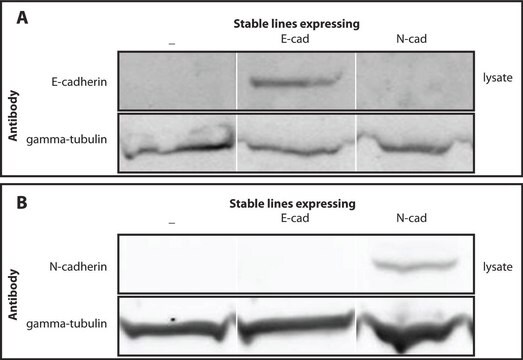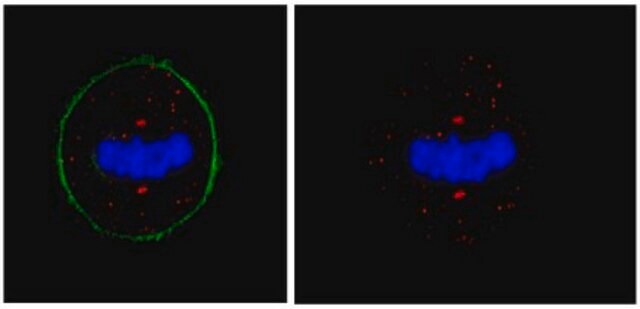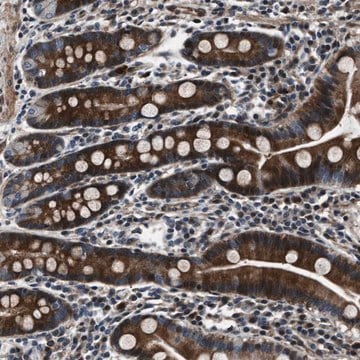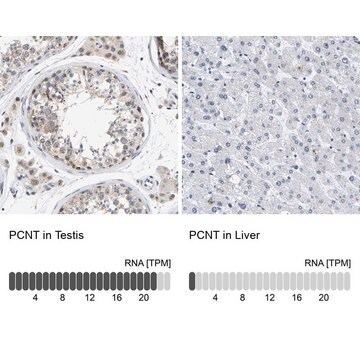T5326
Anti-γ-Tubulin antibody, Mouse monoclonal

clone GTU-88, purified from hybridoma cell culture
Synonym(s):
Anti-Tubulin Antibody
About This Item
Recommended Products
biological source
mouse
Quality Level
antibody form
purified antibody (purified from hybridoma cell culture)
antibody product type
primary antibodies
clone
GTU-88, monoclonal
form
buffered aqueous solution
mol wt
antigen 48 kDa
species reactivity
rat, hamster, chicken, human, bovine, canine, Xenopus, mouse
packaging
antibody small pack of 25 μL
enhanced validation
independent
Learn more about Antibody Enhanced Validation
concentration
~1 mg/mL
technique(s)
immunocytochemistry: 1-2 μg/mL using HeLa cells
immunoprecipitation (IP): suitable
indirect ELISA: suitable
microarray: suitable
western blot: 1-2 μg/mL using total cell extract of chicken fibroblasts
isotype
IgG1
UniProt accession no.
shipped in
dry ice
storage temp.
−20°C
target post-translational modification
unmodified
Gene Information
human ... TUBG1(7283)
mouse ... Tubg1(103733)
rat ... Tubg1(252921)
Looking for similar products? Visit Product Comparison Guide
General description
Specificity
Immunogen
Application
- Western blot analysis
- Immunohistochemistry
- Immunocytology
Biochem/physiol Actions
Physical form
Storage and Stability
Disclaimer
Not finding the right product?
Try our Product Selector Tool.
Storage Class Code
10 - Combustible liquids
WGK
WGK 3
Flash Point(F)
Not applicable
Flash Point(C)
Not applicable
Personal Protective Equipment
Certificates of Analysis (COA)
Search for Certificates of Analysis (COA) by entering the products Lot/Batch Number. Lot and Batch Numbers can be found on a product’s label following the words ‘Lot’ or ‘Batch’.
Already Own This Product?
Find documentation for the products that you have recently purchased in the Document Library.
Customers Also Viewed
Our team of scientists has experience in all areas of research including Life Science, Material Science, Chemical Synthesis, Chromatography, Analytical and many others.
Contact Technical Service













